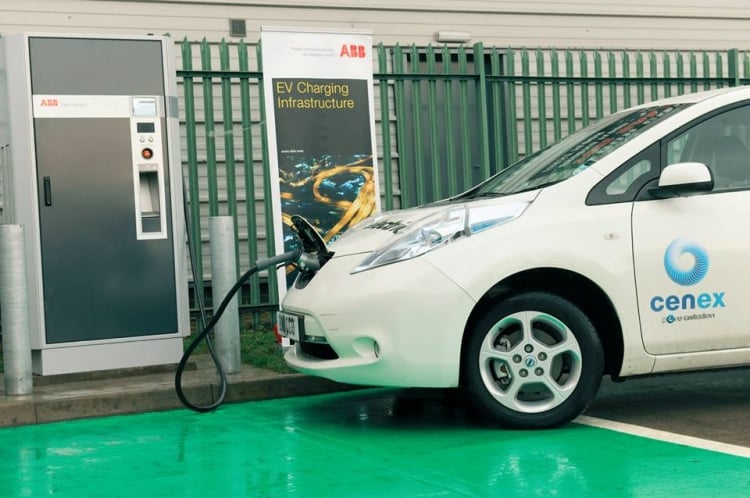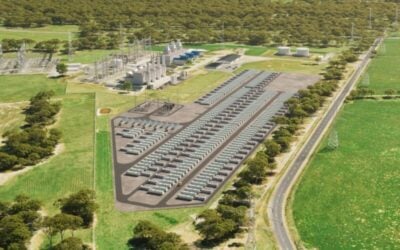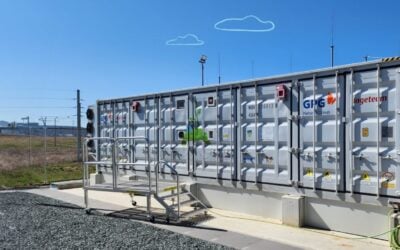
Energy management solutions provider GridBeyond has raised investment to extend its capabilities for “robotic” trading of energy assets and expand internationally, the company’s CEO has said.
The Ireland-headquartered company announced today that it has closed a €52 million (US$55.33 million) Series C funding round, with participation from investors including Energy Impact Partners in the US, Japan’s Yokogawa Electric and Swiss multinational automation hardware company ABB.
Enjoy 12 months of exclusive analysis
- Regular insight and analysis of the industry’s biggest developments
- In-depth interviews with the industry’s leading figures
- Annual digital subscription to the PV Tech Power journal
- Discounts on Solar Media’s portfolio of events, in-person and virtual
GridBeyond uses its artificial intelligence (AI) software to optimise the participation of distributed and front-of-the-meter (FTM) energy assets, including commercial and industrial (C&I) energy storage and demand response, grid-scale storage, and other technologies, in available market opportunities.
That means accessing wholesale markets for day-ahead, intraday, imbalance, frequency regulation and any local distribution system operator (DSO) markets, said CEO Michael Phelan, who spoke with Energy-Storage.news earlier today.
At the same time, for customers that want to maximise their involvement in the energy transition away from fossil fuels through corporate renewable energy power purchase agreements (PPAs) with 24/7 power matching, the GridBeyond platform is used to capture surplus solar or wind power, store it in the battery and then use it at the best time from an economic perspective.
In other words, any clean energy asset that can be optimised for revenue and carbon footprint can be connected to the platform, which the company has been developing since 2010. GridBeyond has more than 2,600MW of assets under management, including more than 500MW of battery storage.
“Using software with human oversight” is the company’s approach, Phelan said.
“A lot of trading to date has been done by humans, with a small amount of software input. We’re almost coming at it from the other side.”
While the human-led approach can work for very large assets, such as grid-scale standalone battery energy storage systems (BESS), GridBeyond realised that, especially when it comes to smaller, distributed assets, “it’s not possible to have a human on every asset.”
“We’ve kind of turned it on its head a little bit and said, ‘If we’re trading lots and lots of small batteries, we’re trading lots and lots of small systems, eventually EVs and various [other] things, we need to be able to turn them into useful blocks of power that can be traded by software, with human oversight and maybe the software acting as a fairly strong co-pilot in terms of making all those trades,” the CEO told Energy-Storage.news.
‘Robotic co-pilot’ for trading energy from distributed assets
A significant portion of the funds raised will be “targeted at the use of AI for energy storage, energy flexibility and the energy transition,” while the rest will help further GridBeyond’s international expansion.
The company is present in markets in the UK and Ireland, where Phelan claimed it is perhaps the biggest aggregator of distributed-scale storage systems below the 50MW mark, and ramped up its push into deregulated US energy markets, such as ERCOT in Texas, during 2023.
The financing, which was led by Klima, the energy transition fund of financial services group Alantra, will help further enhance GridBeyond’s product, described as a Grid Edge Virtual Power Plant solution, so that it can be adapted for all opportunities in the markets it operates in.
“From a technology point of view, we’re continuing to develop the platform so that we can handle, in a co-pilot, almost robotic way, all assets that are available to us.”
As well as furthering its position in the UK, Ireland, and ramping up in US deregulated and even some regulated markets, Australia and Japan are also target markets, Phelan said.
ABB’s minority investment is a strategic one, the automation company said in a release of its own today, that will enable its customers to optimise their distributed energy resources and industrial loads through GridBeyond’s AI and data science-backed energy management solutions.
“They’re kind of adding AI and software to their market-leading hardware. So, they’re one of the leading suppliers of EV charging systems and very strong battery offerings, and they feel that the AI and systems that we have adds a lot of value to those systems,” Phelan said.
“If we work together, then it’s kind of a win-win for everybody.”
Several others among the investors GridBeyond has brought on board in the new round have similarly complementary offerings, albeit in different ways and in different geographies: from Constellation, which is a US utility based in Maryland, electrical engineering and software company Yokogawa Electric in Japan and Energy Impact Partners, which is a venture capital (VC) firm well known in the clean energy space for its investments in everything from EV infrastructure providers to long-duration energy storage (LDES).
Earlier this year, GridBeyond asset development director Scott Berrie took the lead in a sponsored webinar with Energy-Storage.news, looking at the growing appetite for merchant risk in the front-of-the-meter battery storage space, joined by representatives of UK developers Zenobe Energy and Fig Power.
This followed a feature article contributed to our quarterly journal PV Tech Power Vol.36 (Q3 2023) from the company’s US-based team, which looked at the optimisation of battery storage assets in that country’s two leading markets, ERCOT and CAISO.






